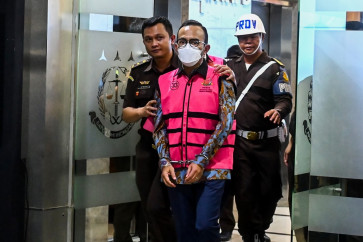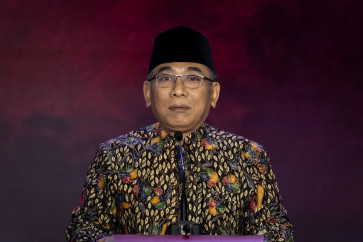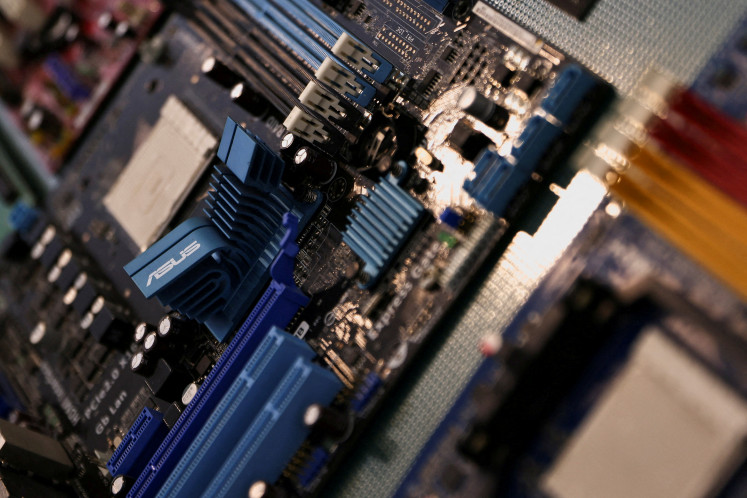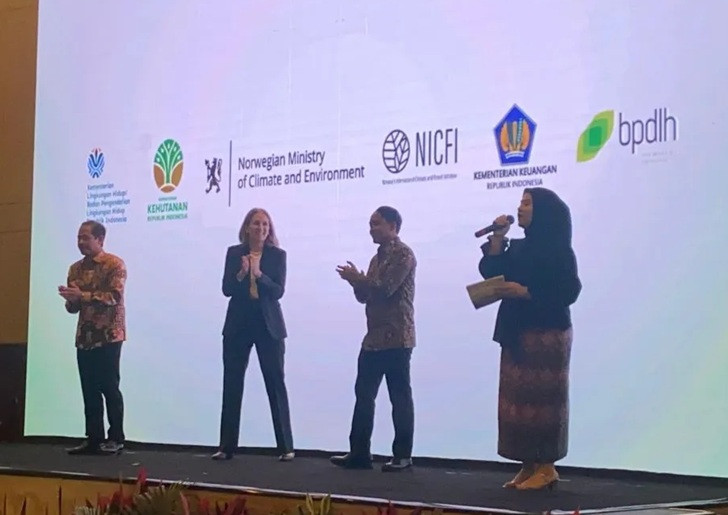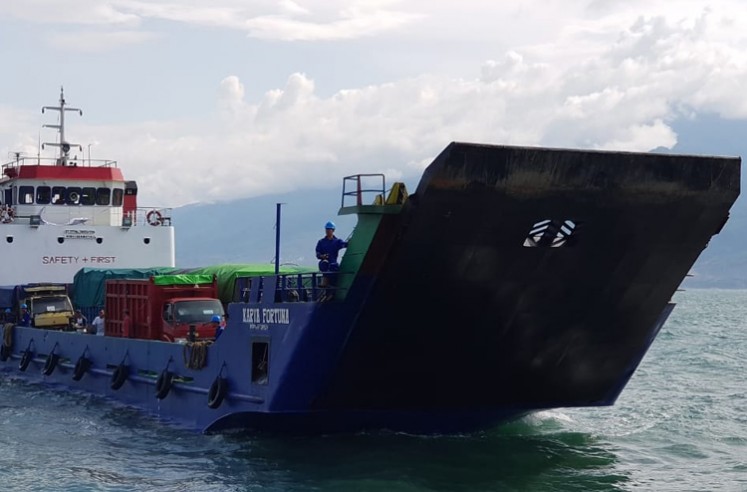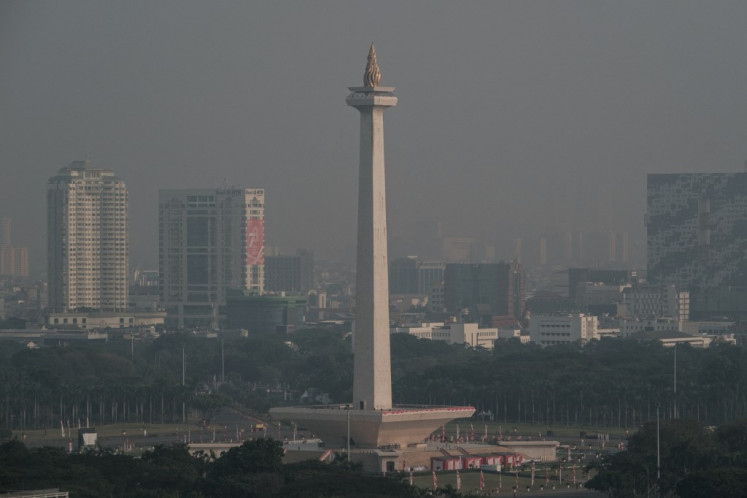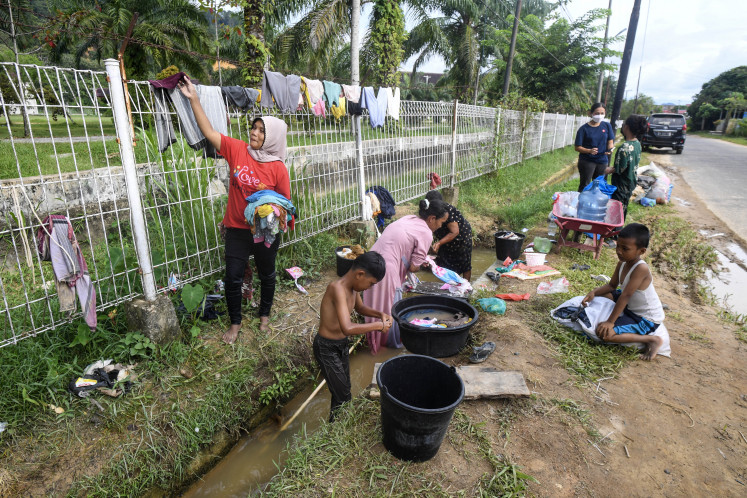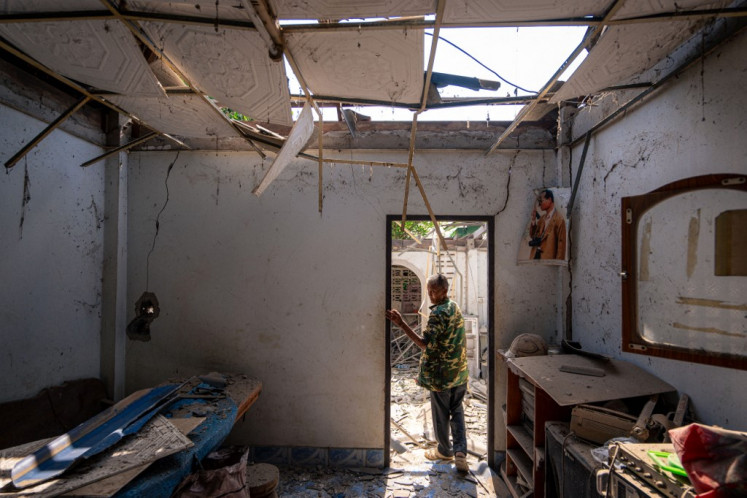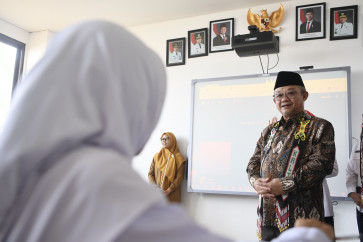Popular Reads
Top Results
Can't find what you're looking for?
View all search resultsPopular Reads
Top Results
Can't find what you're looking for?
View all search resultsDignifying students key for Indonesia’s education: Education minister
Elementary and Secondary Education Minister Abdul Mu'ti reflects on a year of his and his ministry's achivement since taking office in October 2024, and underlines his plan for the future of elementary education in Indonesia.
Change text size
Gift Premium Articles
to Anyone
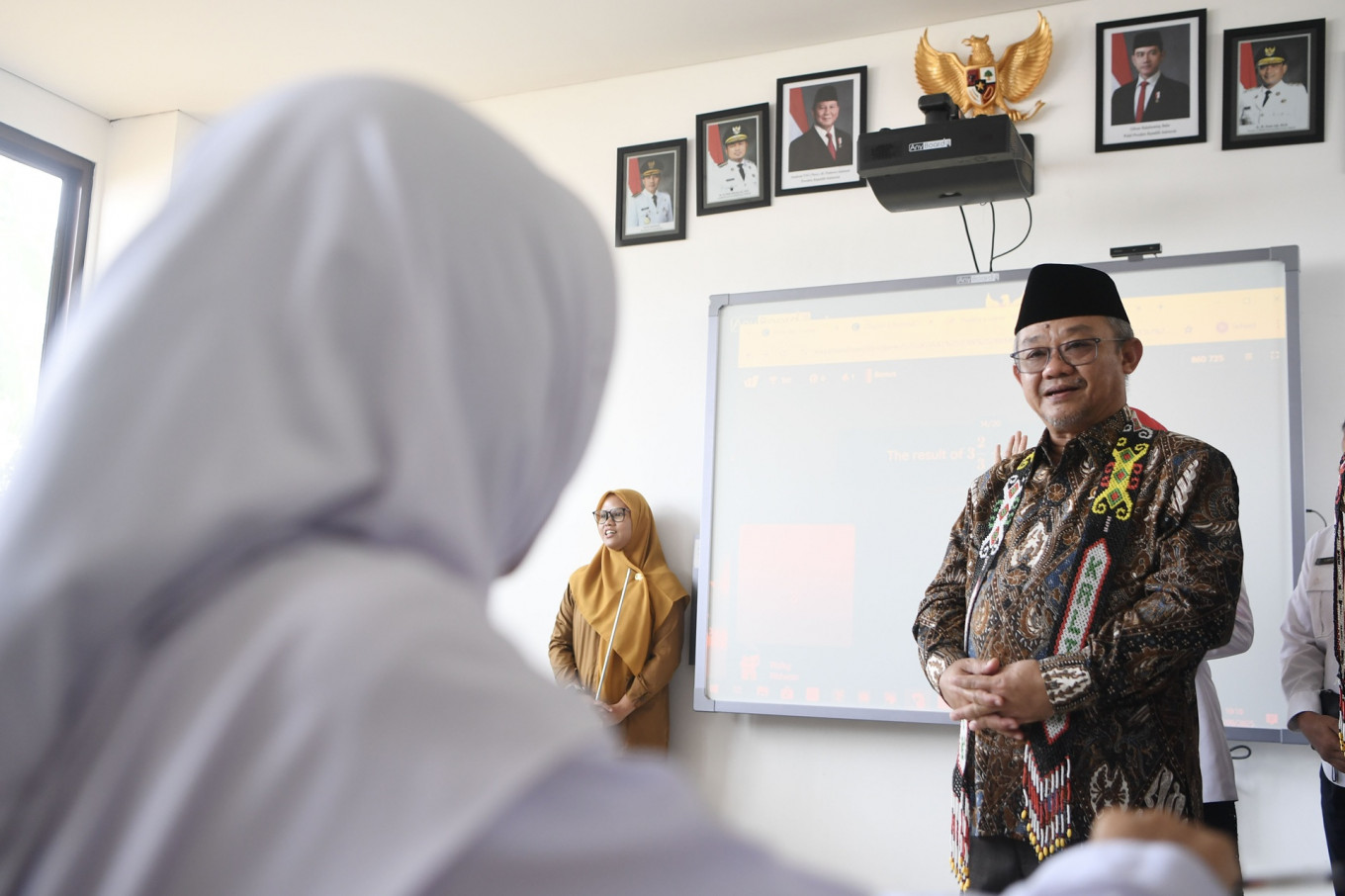 Elementary and Secondary Education Minister Abdul Mu'ti (right) talks with a student on the sidelines of the inauguration of an integrated school on Sept. 30 in Samarinda, East Kalimantan. The international-standard school integrates schools of three levels of education, namely SDN 28 state elementary school, SMPN 16 state junior high school and SMA Prestasi senior high school. (Antara/M. Risyal Hidayat)
Elementary and Secondary Education Minister Abdul Mu'ti (right) talks with a student on the sidelines of the inauguration of an integrated school on Sept. 30 in Samarinda, East Kalimantan. The international-standard school integrates schools of three levels of education, namely SDN 28 state elementary school, SMPN 16 state junior high school and SMA Prestasi senior high school. (Antara/M. Risyal Hidayat)
A
year into President Prabowo Subianto’s administration, education remains a top priority, with the government focusing on improving physical and digital infrastructure and teacher welfare. These efforts are handled primarily by the Elementary and Secondary Education Ministry. Yet, the ministry has faced public scrutiny and questions regarding overlapping educational mandates across different government bodies. Minister Abdul Mu’ti sat down with The Jakarta Post’s Maretha Uli and Kharishar Kahfi to discuss the ministry’s achievements and challenges over the past year, and to share his vision for the country’s future education landscape. Below are excerpts from the interview.
Question: A year into your tenure as the Minister of Elementary and Secondary Education, how do you assess the progress and achievements of your programs?
Answer: In one year it felt like we had a lot to do. In the first month, I met with thinkers, religious leaders, education figures and journalists to listen to them and understand current education figures. Then I began formulating several strategies. After a month, I refined some of those ideas, including what I later developed into my concept of Quality Education.
The first 100 days went quite well. The public felt we were on the right track, in line with their expectations, even though at the beginning I sensed that people had different expectations and assessments. I paid attention to all the feedback on our policies and tried to follow it up.
Alhamdulillah (praise be to God) in the first three months several surveys ranked our ministry first or in the top 10 [for best performance]. Now we are on track to improve what is still lacking and accelerate what is already working well.
What has been the biggest challenge in implementing all of the programs?
The most difficult part has been explaining so many policies in such a short time. Overall, however, everything has been progressing well. I'm fortunate that many of my statements have generated a public response, both agreement and disagreement.



